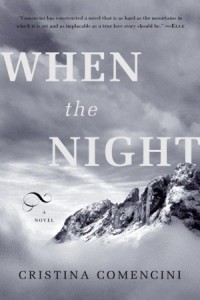Getaway by Lisa Brackmann
 Monday, April 30, 2012 at 8:00AM
Monday, April 30, 2012 at 8:00AM 
Published by Soho Press on May 1, 2012
On vacation in Puerto Vallarta, Michelle has a few margaritas and takes a good-looking guy named Daniel to bed. Later that night, two men climb through her window and smack Daniel in the head with the butt of a pistol. When Michelle later tracks down Daniel, she discovers the head of a pig, covered in flies, on his coffee table. Things go downhill for Michelle from there. Someone plants drugs in her purse. Her passport is missing. And Gary, the charming American who gets her out of jail, seems to know everything about her -- and wants her to keep an eye on Daniel, a request she is in no position to refuse.
Who is Daniel? Responding to Gary’s threats and inducements, Michelle tries to find out more about the charming but cagey charter pilot. But who is Gary? The most interesting aspect of the novel is Michelle’s confusion. She learns that dangerous people are looking for Daniel -- the kind of people who leave bodies in their wake -- but she doesn’t know whether that makes Daniel a good guy or a bad guy. Nor does she know whether Gary is one of the dangerous people. She wants to trust Daniel because he makes her feel good in bed, but all the evidence suggests he’s a drug smuggler or worse. The inability to decide whether she should trust Daniel or Gary, or neither of them, leaves Michelle feeling helpless, a pawn in a game she doesn’t understand. Empathy for Michelle sustains the novel’s dramatic tension, although her helplessness eventually becomes Getaway’s most significant problem.
While Getaway is a reasonably effective thriller, it isn’t as strong as it might have been. Despite the growing body count that surrounds Michelle, I never felt the sense of apprehension that the best thrillers deliver. I think the problem lies in Lisa Brackmann’s construction of the main character. Michelle is timid, dependent, remarkably uninformed about world events, and prone to making bad decisions -- the antithesis of characters like Lisbeth Salander or Vanessa Michael Munroe. I felt a growing sense of annoyance at her inability to take control of her situation. The wait for Michelle to show some initiative and exhibit her resourcefulness is a long one. I was also disappointed by an ending that holds no real surprises.
Brackmann writes punchy sentences and short paragraphs, a technique that contributes to the novel’s quick pace. Her prose style is plain but effective. Getaway isn’t a bad reading experience -- it’s the sort of book that would make time pass quickly on an airplane -- but I wouldn’t expect it to make anyone’s list of the year’s best thrillers.
RECOMMENDED



